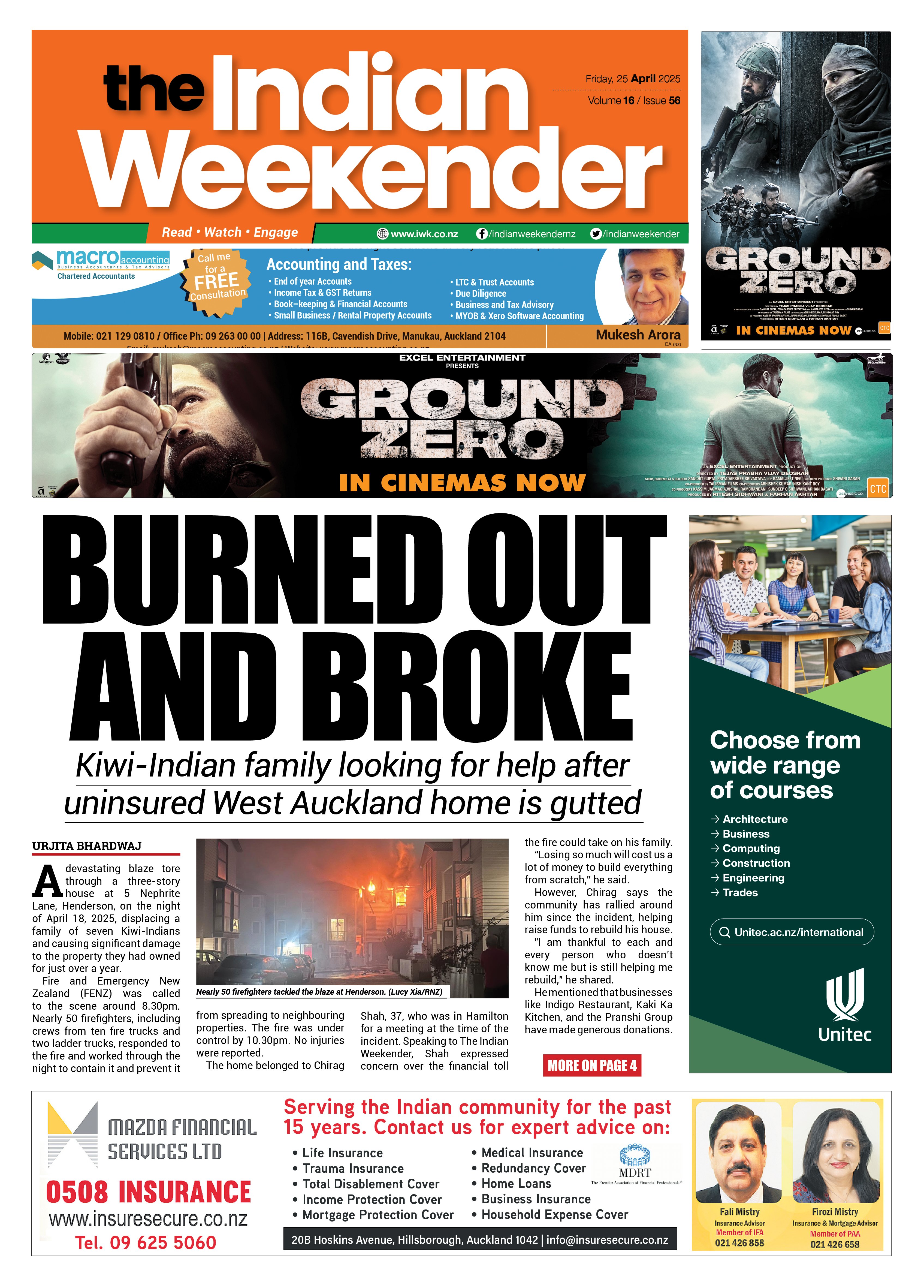Kiwi Indians share their rainbow journey
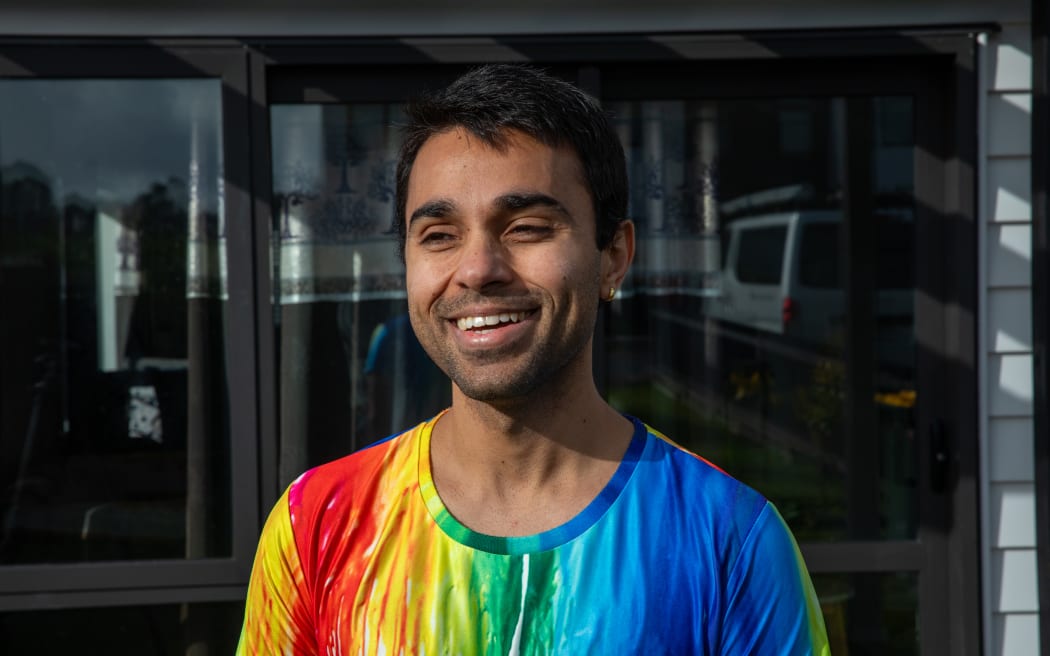
Ajay Chhibber and Kavita Brough are from two different parts of the world, but both have endured similar challenges when they came out and embraced their true identities.
Thirty-three-year-old Chhibber grew up in Ambala, a city in northern India. He grappled with his sexuality during his teen years.
"I was not ready to accept myself," he says. "I hated the idea of being gay."
The lack of rainbow representation in Indian movies and television shows didn't help 15-year-old Chhibber either.
"They don't show these relationships very openly or in a happy way. It's either a tragic story or they are mocked or ridiculed," he recalls. "I used to pray, I used to cry in the temple: "Please fix me, I'm broken.'"
Chhibber slowly started reading and watching documentaries to understand more about himself.
"Towards the end of 2011, I was ready to accept myself," he says.
However, he couldn't come out at that time because being openly gay was a criminal offence in India.
In 2018, India's Supreme Court decriminalised gay sex in a landmark ruling.
In June, Nepal created history by becoming the first country in South Asia to legally recognize same-sex marriage.
Back in 2011, Chhibber decided to come out to his close friends.
"I remember the time I was in university, and I had strong feelings for one of my friends and I was struggling with my identity but I'm having these thoughts, so I finally gathered the courage and told him," Chhibber says. "And I guess that was the first time I came out to myself and said, 'I'm a gay man.'"
Confronting his family and telling them about his identity was another hurdle for Chhibber.
"I moved to New Zealand in 2015 and started exploring the rainbow side of Auckland City. I started getting involved with the rainbow community and that community feeling gave me more confidence and boosted my morale," he recalls. "So, my first trip back home after I moved to New Zealand was the time I decided to talk to my parents."
But before he opened up to his family, he called his sister in India.
"I just told her. She was like, 'It's okay, I love you who you are and it doesn't matter who you want to be with. It's your life, it's your decision.' So that was a big relief," he says.
The next step was still tough.
"Over dinner, I said: 'Mummy, Pappa, I have to tell you this. I am gay.' There was an awkward silence (at) the dinner table. I remember I got emotional. My younger brother was also sitting there, and he got emotional as well," Chhibber says. "My mother started crying and she consoled me. She hugged me. My father on the other side, I guess he was kind of disappointed."
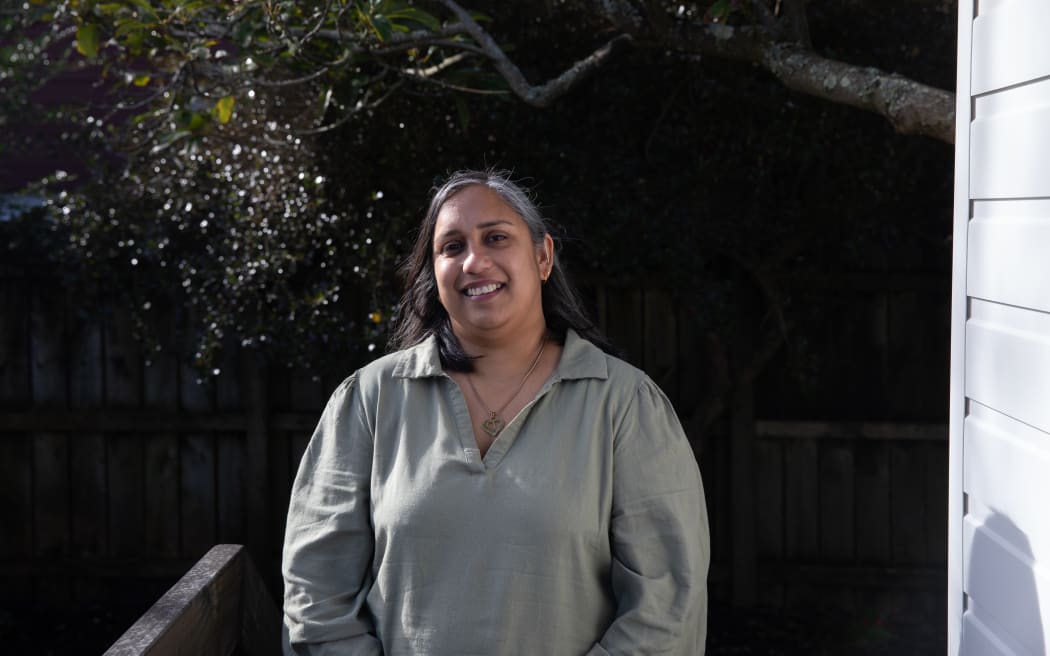
Kavita Brough. Photo: RNZ / Blessen Tom
Forty-five-year-old Kavita Brough faced similar challenges.
"My dad didn't talk to me for 10 years when I got married," she says. "That was pretty hard."
She was born in Wellington to Indian parents.
"I think I always knew I was gay," she says. "I didn't come out as such. I had my first girlfriend when I was 23, who I met at work. And then we went to Australia together.
"My parents didn't know. I had to tell them when I was living in Australia, wrote them a letter. They were upset," Brough says. "It was easier for me because I was in a different country but when I came back to New Zealand, it didn't go well."
Life became really complicated.
"I used to go out to events with my family, but I don't think my dad ever felt comfortable, so I just stopped going to Indian functions," she says.
Brough moved to Auckland to get away from her problems but missed her family a lot.
"In the beginning it was very hard," she says. "I grew up really close with my parents, especially my dad. So, it was hard not to have that relationship."
Need for support
Shay Singh is aware of the problems that rainbow members of the Indian community experience.
He is the chair and co-founder of Indian Origin Pride New Zealand.
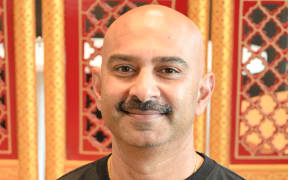
Shay Singh. Photo: Supplied
"It was more of a need," said Singh about the genesis of the organisation.
"I came out when I was 23 and, back then, there wasn't any support organisation that was culturally aligned that I could go," he says.
"I moved to Australia and lived there for 20 years and when I moved back in 2021, I started looking around again for organisations catering to the Indian community, but there weren't any."
Singh says the lack of support for LGBTQIA+ Indians prompted him to launch a national organization with Arrun Soma last year.
Indian Origin Pride launched its flagship peer support programme in May.
"The purpose of the peer support programme is to make sure that people feel like they belong to a community," Singh says.
"If they have any concerns or challenges, we have facilitators and then we also have qualified psychologists for one-on-one counselling. It's really about identifying each individual's journey and then being able to lend support as needed."
Singh agrees that Indian community is very conservative and thinks that "the biggest challenge within the community is acceptance."
"Religion plays a big part of the culture and then there's the community itself always worried about what someone is going to say," he says.
Singh urges members of the community to utilize all the resources Indian Origin Pride provides.
"We've just launched this programme and what we want to do is encourage people to join in (and) utilize that service," he says.
'They know it, but they don't talk about it'
"It took him a few months," says Chhibber in describing his relationship with his father after coming out.
"My father knows about me, and my parents know about this, but they don't talk about it," he says. "I guess it is still a taboo subject for many Indian families."
But he agrees that change is happening and more families within the community are now accepting rainbow members.
"I'd say things are changing, but at a slow pace," he says. "I feel like we will be a better generation of parents."
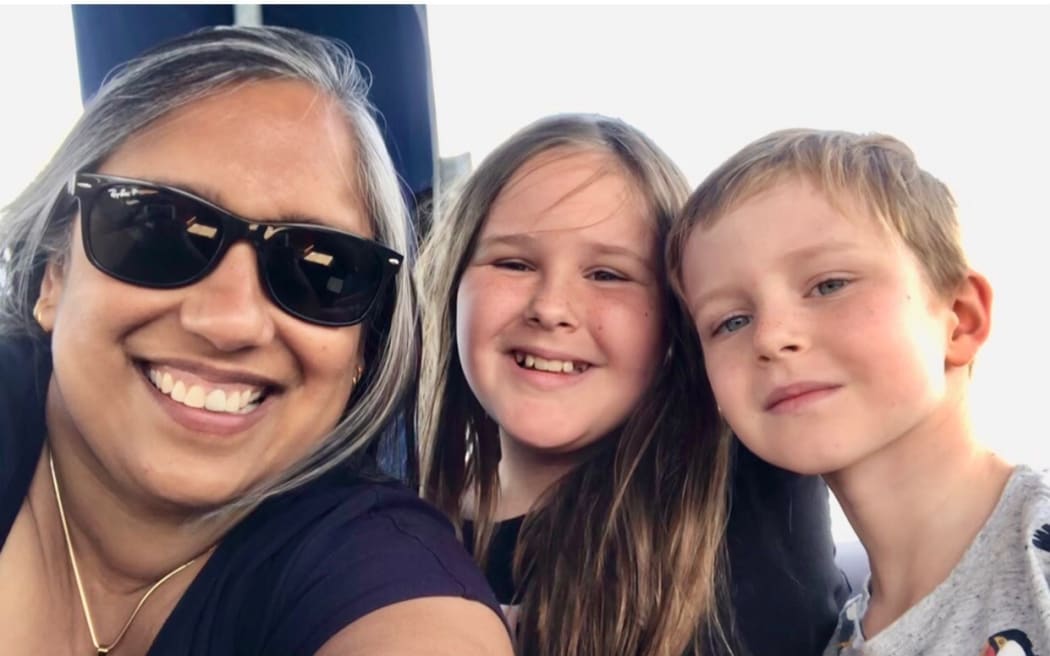
Kavita Brough poses for a selfie with her children. Photo: Supplied
Brough agrees.
"Last year, both my parents came over to my house. My dad said, 'Life is too short,' which is amazing, but it took him a long time to get there'" Brough recalls. "And I'm talking about 20 years to get there for him to say life's too short."
Brough also hopes for a shift in mindset for the community when it comes to rainbow issues.
"I just hope as time progresses, our children's children's children, things will get easier."
Until then, both Brough and Chhibber are keen to share their advice for younger members of the Indian rainbow community.
"My advice would be don't run away, face your demons," Brough says. "Come out to your family, have support, people around you. Talk to others that have been through similar things that you may have been through and it's actually okay to be yourself. Don't hide away. And things actually do get better as time goes by."
"Don't just rush into putting up a label on yourself," Chhibber says. "These labels are not something that defines you. Believe in yourself, love yourself, accept yourself."




